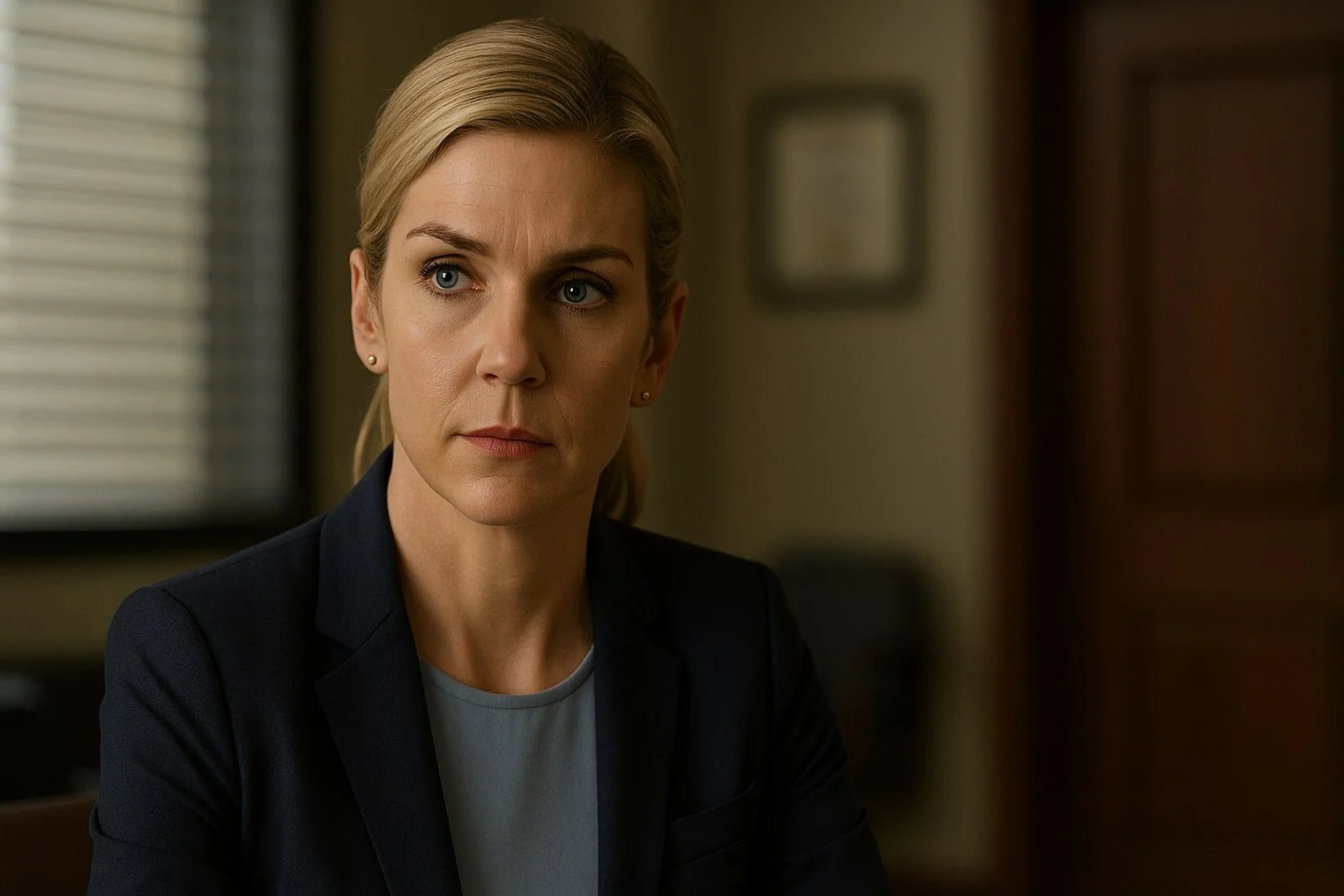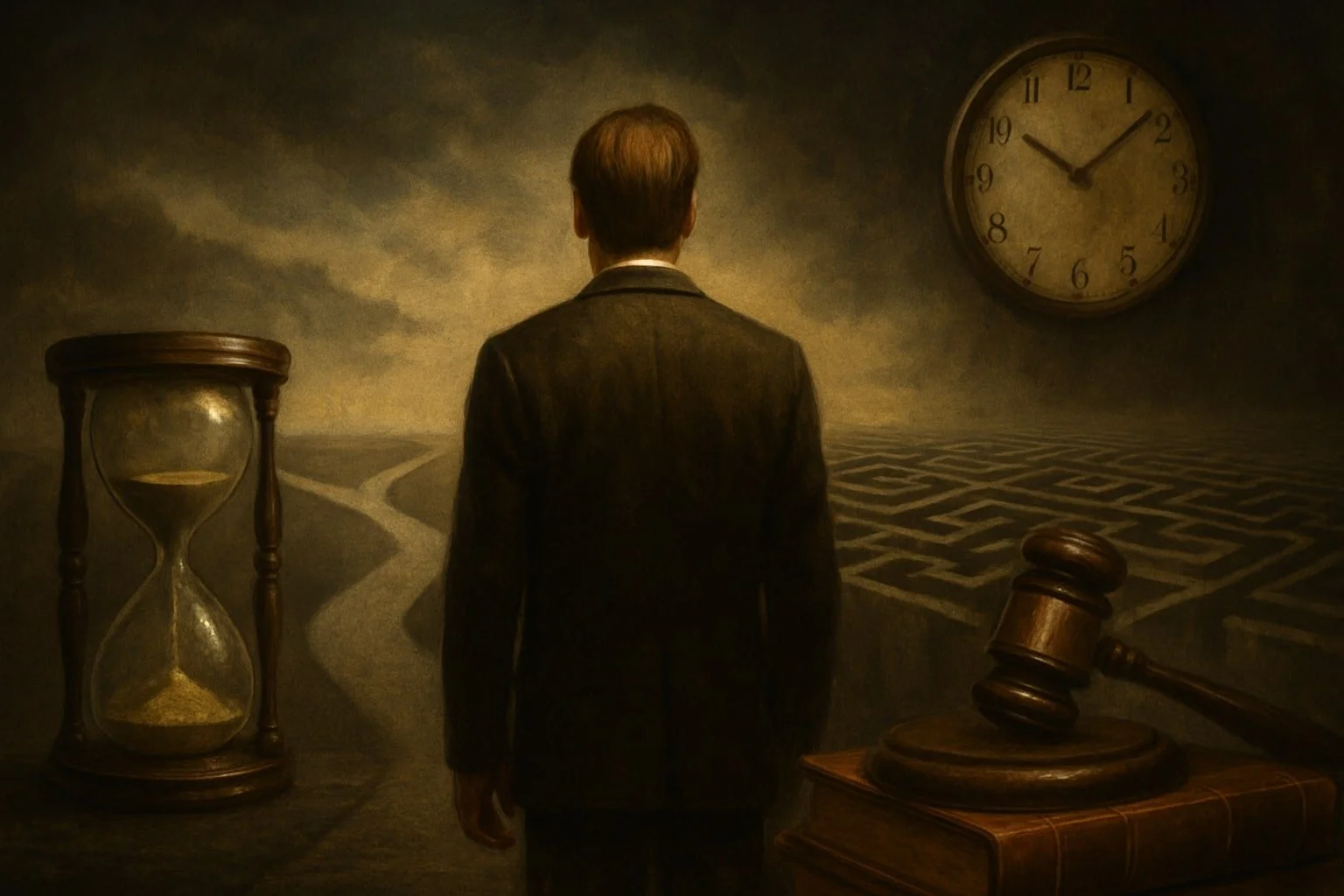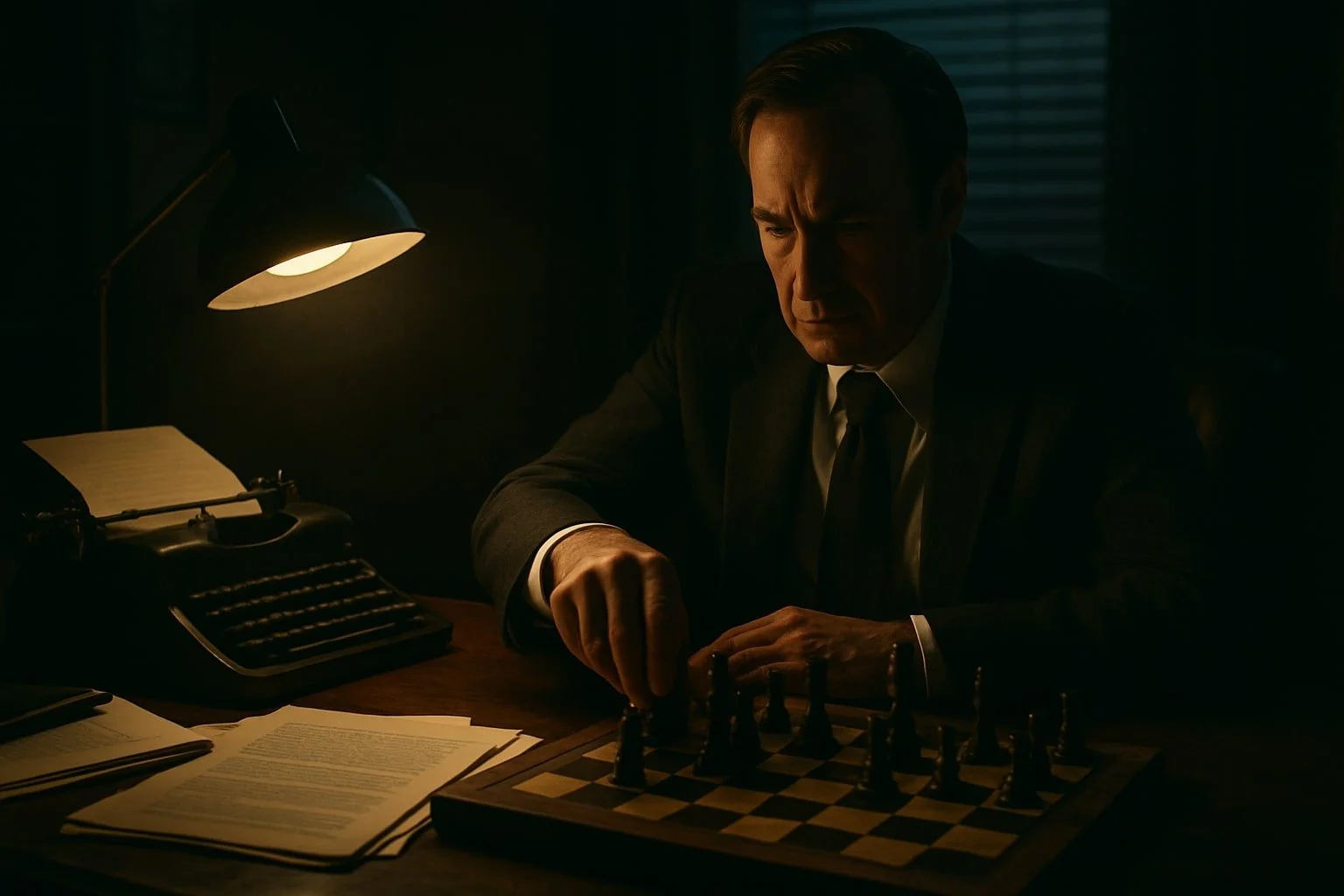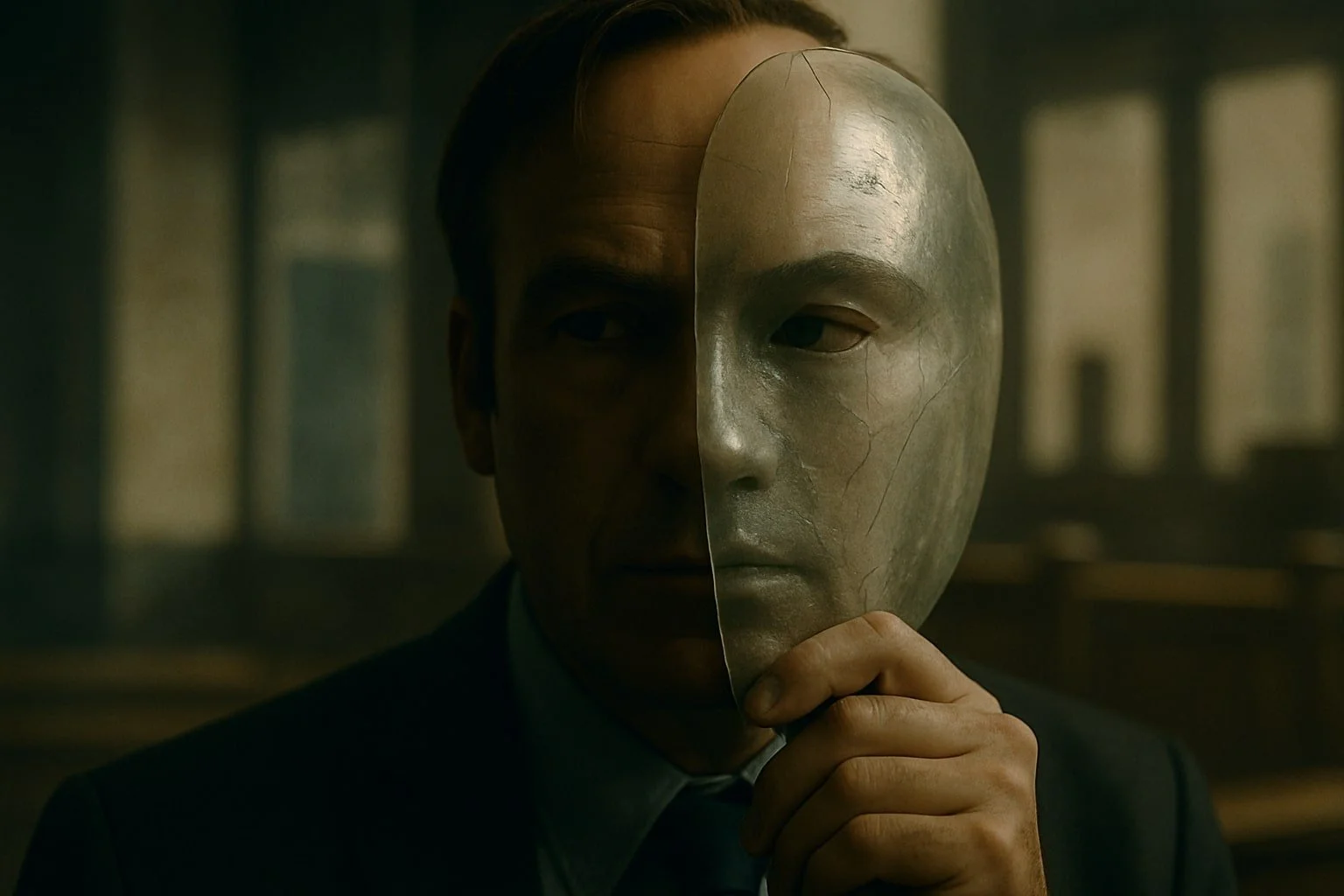Breaking Bad
Dive into the dark and gripping world of Breaking Bad, the critically acclaimed TV series that redefined television drama. From Walter White's transformation to the iconic title sequence, we explore the show's unforgettable characters, pivotal moments, and lasting impact on pop culture. Join us as we analyze the science of storytelling behind this groundbreaking series.
The Real Love Story in Better Call Saul Is About Self-Respect and Personal Growth
Discover how Better Call Saul’s true love story centers on Jimmy McGill’s journey toward self-respect and personal growth, beyond legal drama and romance.
How Better Call Saul Changed the Way We Watch Prequels Forever by Redefining Storytelling
Discover how Better Call Saul transformed prequels by delivering original, character-driven narratives that go beyond nostalgia, redefining storytelling for modern TV audiences.
The Power of Kim Wexler’s Silence in Better Call Saul
Explore how Kim Wexler’s silent, unspoken moments in Better Call Saul reveal her inner conflicts, moral struggles, and strength, shaping the story in profound ways.
What Kim’s Haircut Symbolized in Better Call Saul and Its Impact on Her Character Development
Discover how Kim Wexler’s signature ponytail in Better Call Saul symbolizes her discipline, control, and professional strength, reflecting her complex character growth throughout the series.
Kim’s Moral Collapse Is the Quietest Tragedy in Better Call Saul and Redefines the Series’ Ethics
Explore Kim Wexler’s subtle yet profound moral decline in Better Call Saul. Discover how her transformation from principled lawyer to morally conflicted partner shapes the series’ complex ethical landscape.
What Makes the Salamanca Cartel So Terrifying in Better Call Saul
Explore the ruthless violence, fierce family loyalty, and fear tactics that make the Salamanca cartel in Better Call Saul unforgettable. Discover how Hector and Lalo Salamanca blend charm with deadly efficiency.
How Better Call Saul Made Every Choice Feel Inevitable Through Masterful Storytelling
Discover how Better Call Saul’s creators Vince Gilligan and Peter Gould crafted a compelling world where every character decision feels like the only logical outcome, grounded in rich storytelling and deep character development.
Why Chuck McGill Was Right—And Still the Villain in Better Call Saul
Discover why Chuck McGill’s harsh judgment of Jimmy McGill in Better Call Saul was justified. Explore Chuck’s complex morality and his foresight into Jimmy’s transformation into Saul Goodman.
The Role of Identity in Better Call Saul: Exploring Jimmy, Saul, and Gene’s Transformation
Explore the complex identity shifts in Better Call Saul as Jimmy McGill evolves into Saul Goodman and later Gene Takavic, revealing how each persona reflects his struggle to survive and adapt.
Why Better Call Saul Rewards Patient Viewers More Than Any Other Show Through Its Masterful Storytelling
Discover how Better Call Saul captivates patient viewers through its slow-paced, layered storytelling, deep character development, and complex moral dilemmas—setting it apart from other AMC dramas.
Why Jimmy and Kim’s Cigarette Scene Is the Show’s Most Poetic Moment
Explore the emotional depth and symbolism behind Jimmy and Kim’s cigarette scene, a quiet yet powerful moment that captures their complex relationship and full-circle journey.
Why Better Call Saul Is a Masterclass in Slow-Burn Storytelling and How It Redefines Television Drama
Discover how Better Call Saul redefines television drama with its masterful slow-burn storytelling, blending rich character development and suspense for a deeply rewarding viewing experience.
The Meaning of Time and Regret in Better Call Saul’s Final Scene Explained and Analyzed
Explore how Better Call Saul’s finale "Saul Gone" uses themes of time and regret to close Jimmy McGill’s story, revealing his deepest regrets and the impact of his choices.
How Better Call Saul Made Boredom Dangerous by Turning Stillness into Suspense
Discover how Better Call Saul transforms stillness and boredom into gripping suspense, revealing how monotony drives characters like Jimmy McGill and Kim Wexler toward risky, life-changing decisions.
Why Saul’s Jail Cell Felt Like Redemption in Better Call Saul
Explore how Saul Goodman’s time in jail in Better Call Saul represents his transformative journey from deception to redemption, marking a powerful moment of self-reflection and accountability.
Why Gene's Ending Was Perfect for Better Call Saul’s Themes
Explore how Gene’s fate in the Better Call Saul finale reflects the series’ core themes of guilt, consequences, and redemption, providing a fitting conclusion to Jimmy McGill’s journey.
The Ethics of Legal Manipulation in Better Call Saul
Explore how Better Call Saul delves into legal ethics through Jimmy McGill’s transformation, revealing the blurred lines between clever lawyering, justice, and ethical boundaries.
Mike’s Code of Ethics in Better Call Saul Is More Complex Than You Think
Discover how Mike Ehrmantraut’s unique code of ethics in Better Call Saul blends personal rules, loyalty, and pragmatism, setting him apart in a world of moral ambiguity and criminal challenges. Learn why his strict internal system defines his actions beyond traditional right and wrong.
What Better Call Saul Teaches About the Masks We Wear in Everyday Life
Explore how Better Call Saul uses Jimmy McGill’s transformation to illustrate the masks people wear daily to protect themselves and fit in, and the blurred lines between identity and pretense.
The Best Opening Scenes in Better Call Saul and What Makes Them Memorable
Discover the most memorable opening scenes in Better Call Saul and how they set the tone, reveal character motivations, and highlight Jimmy McGill's transformation into Saul Goodman. Learn why these cold opens captivate fans and deepen the show's storytelling.



















